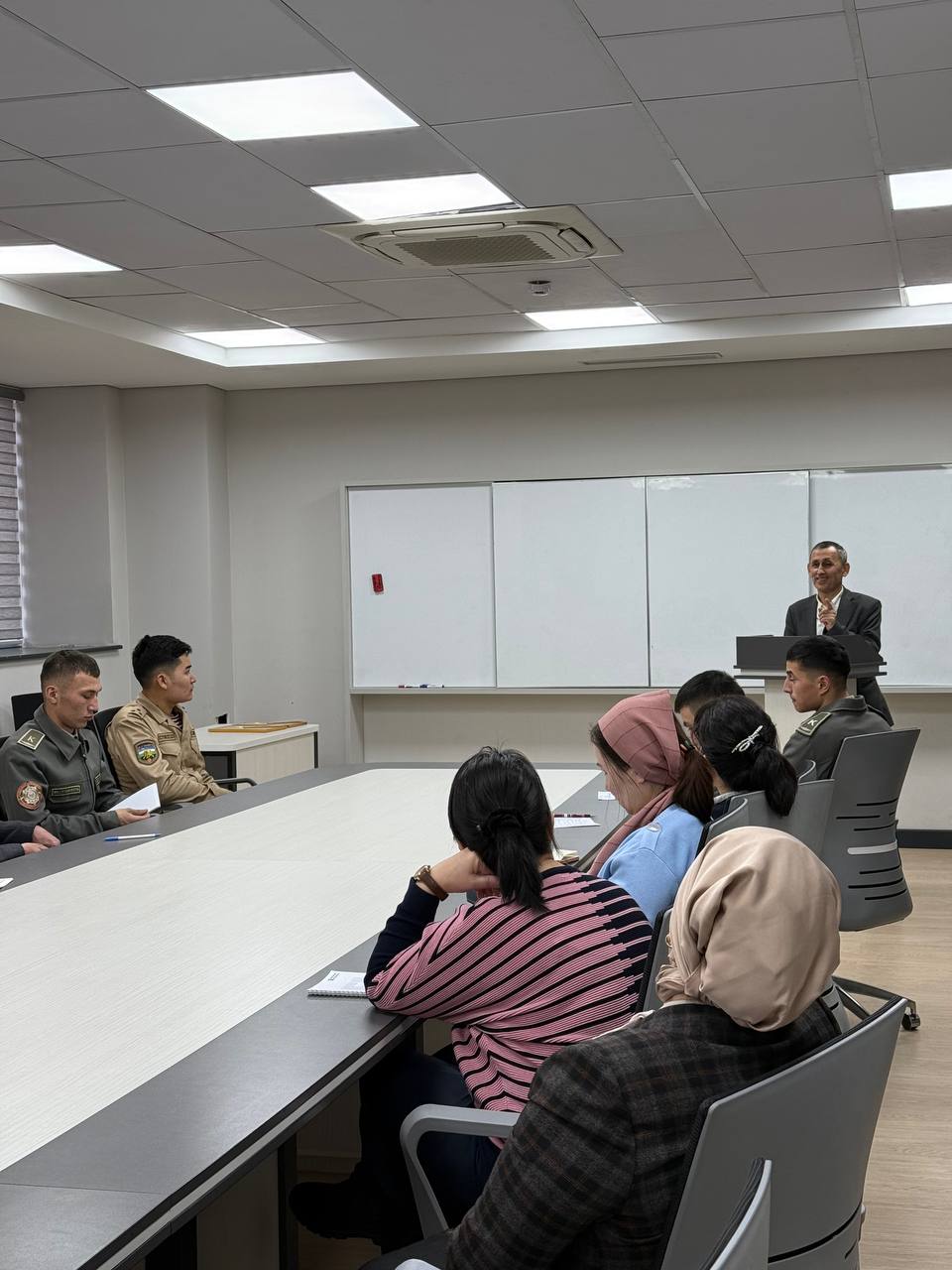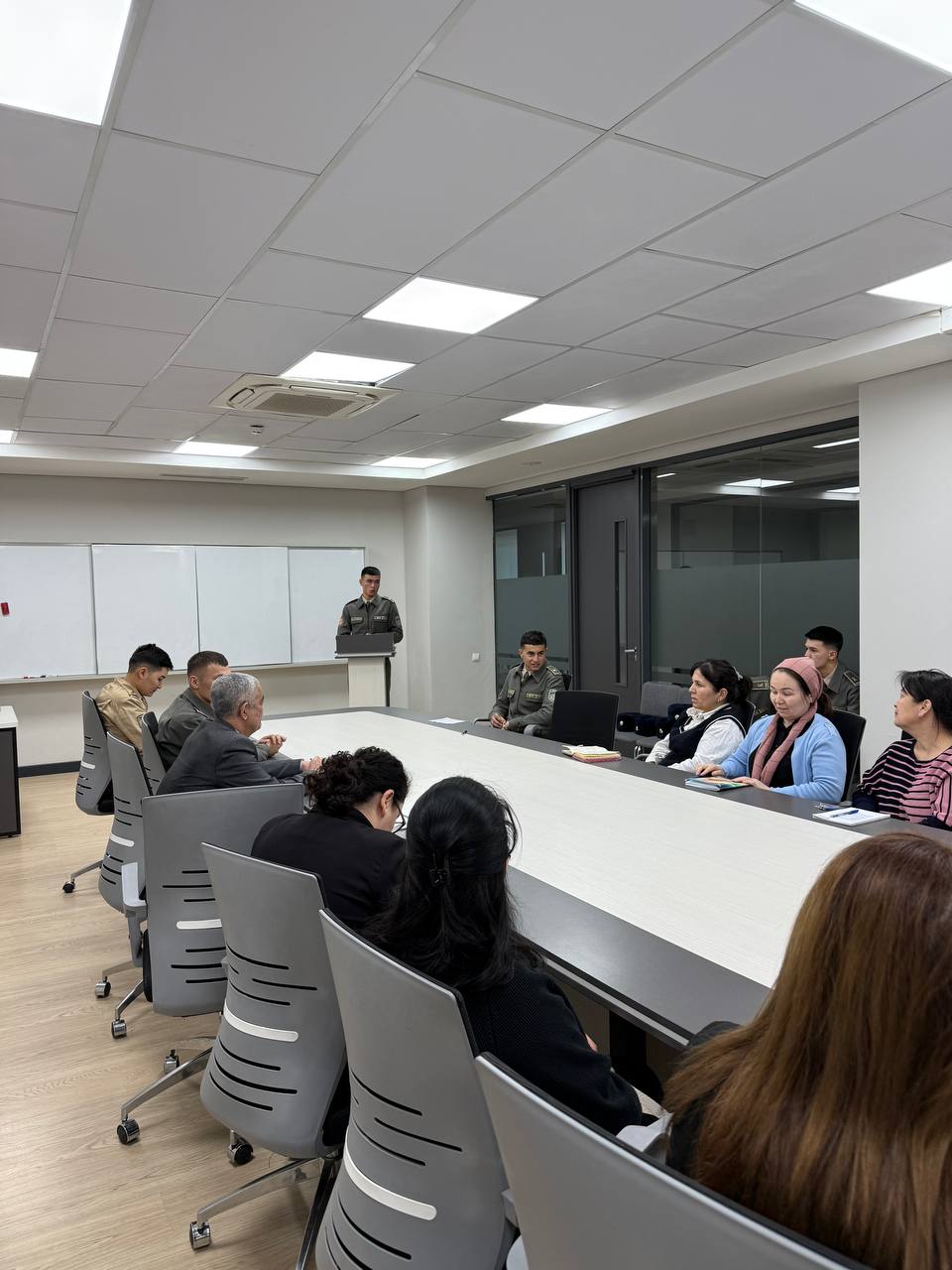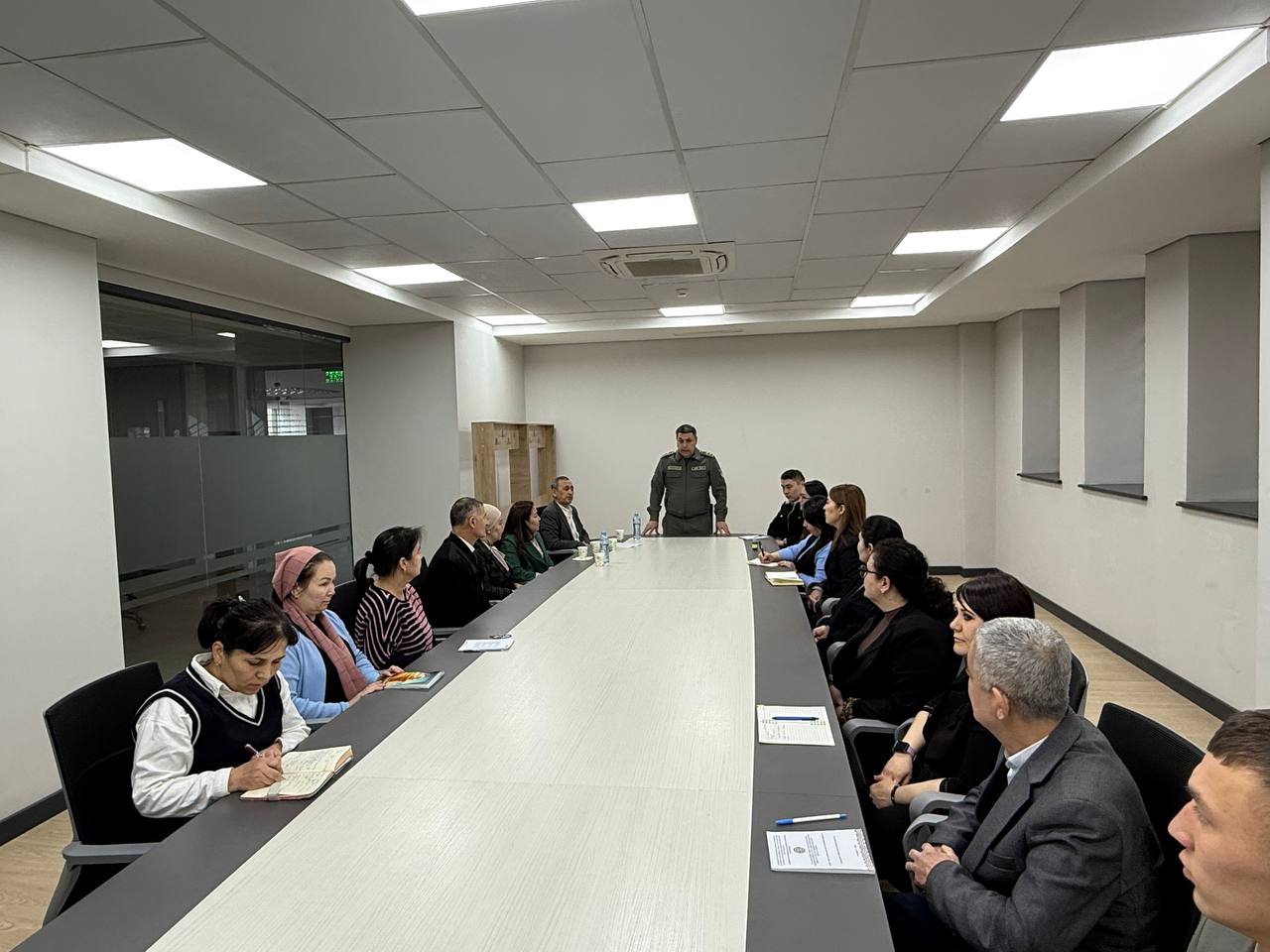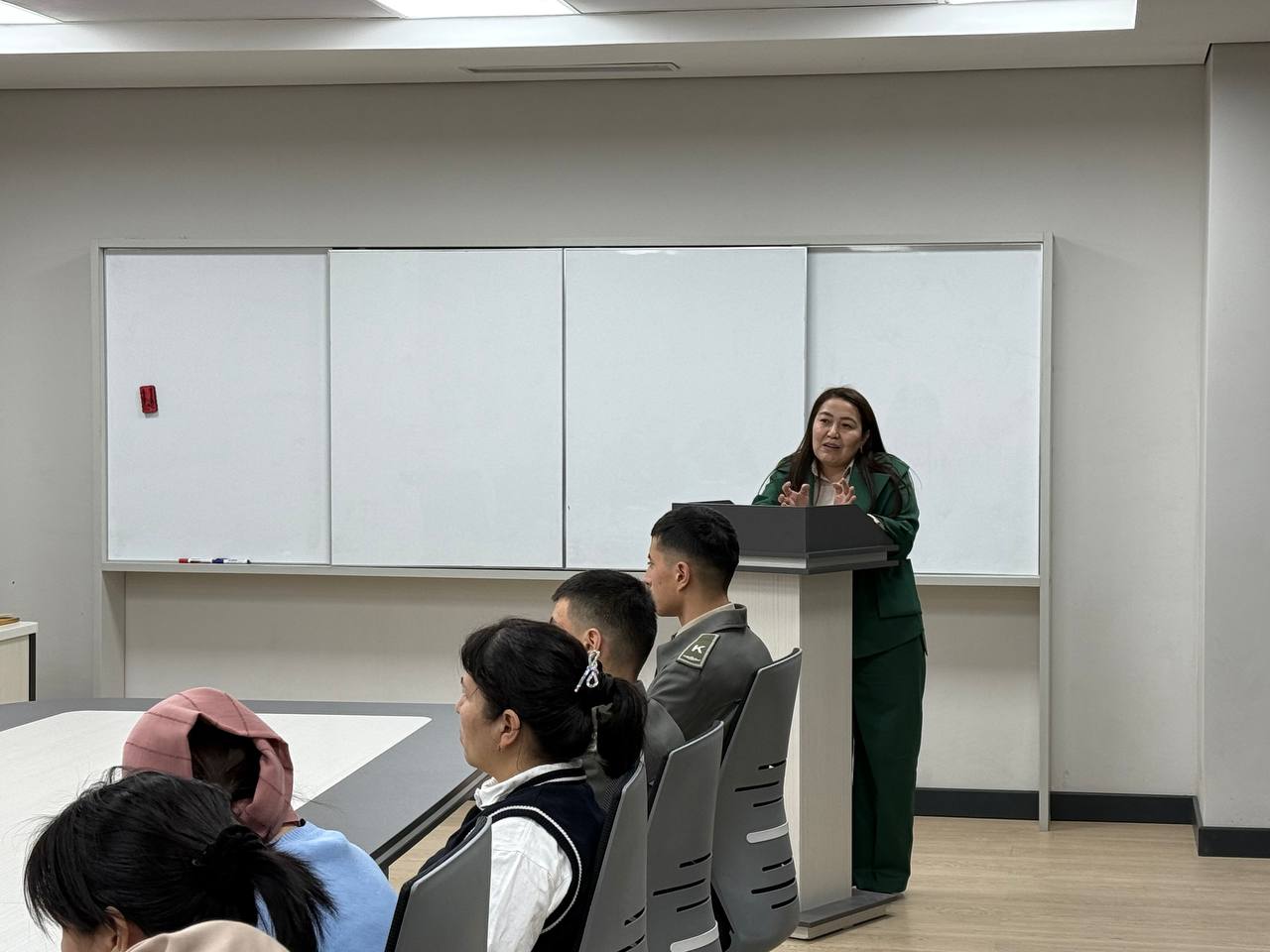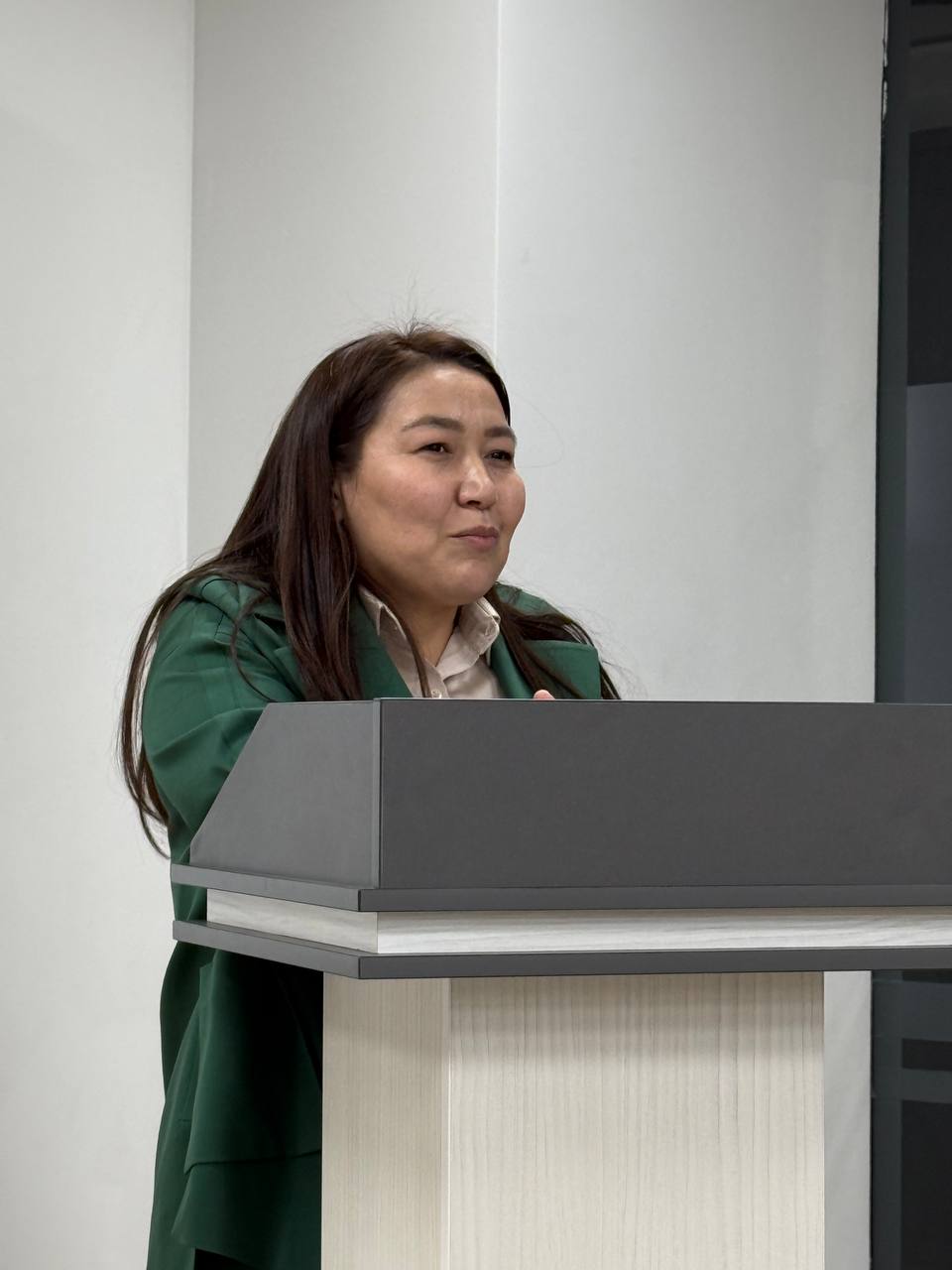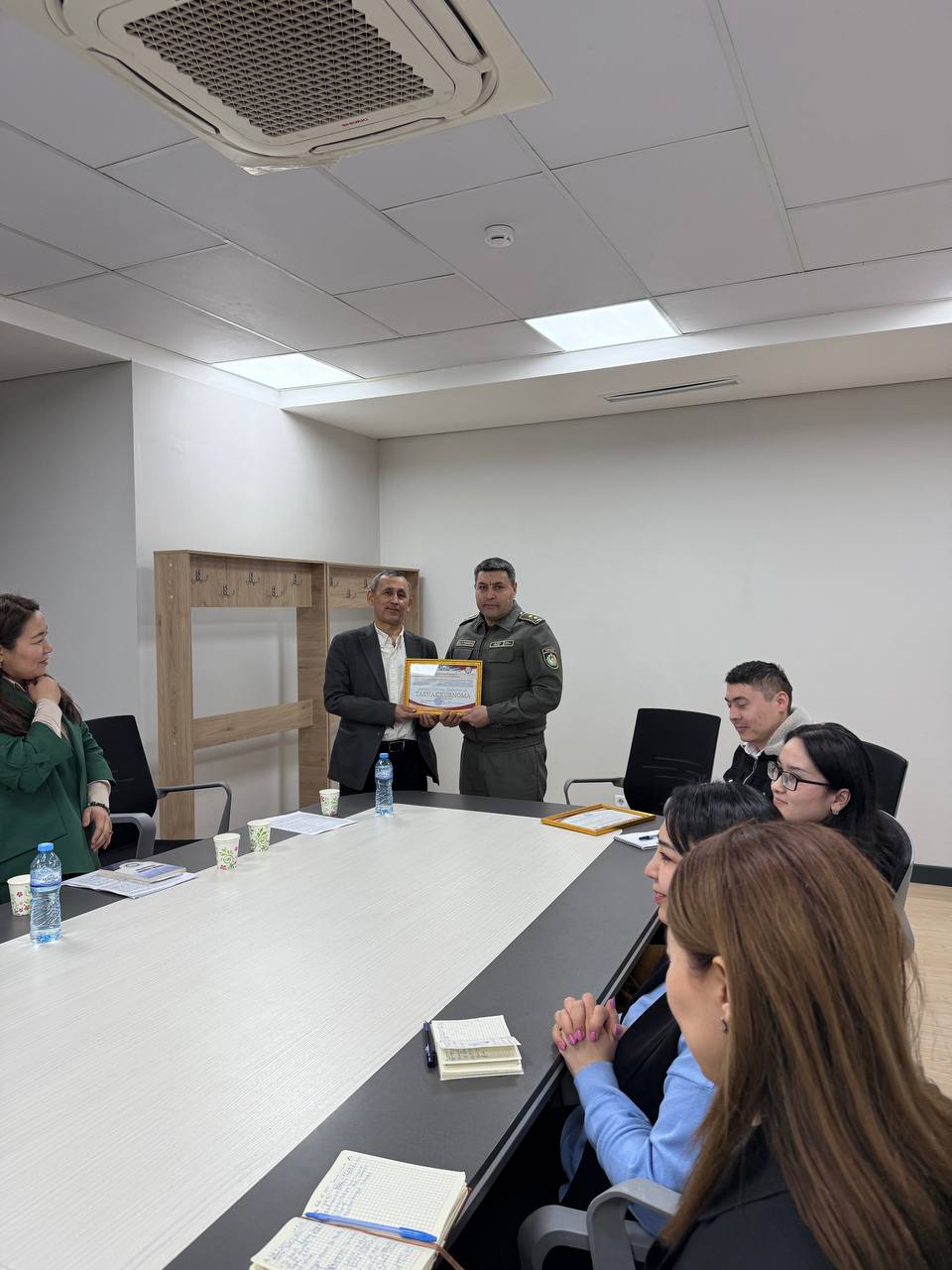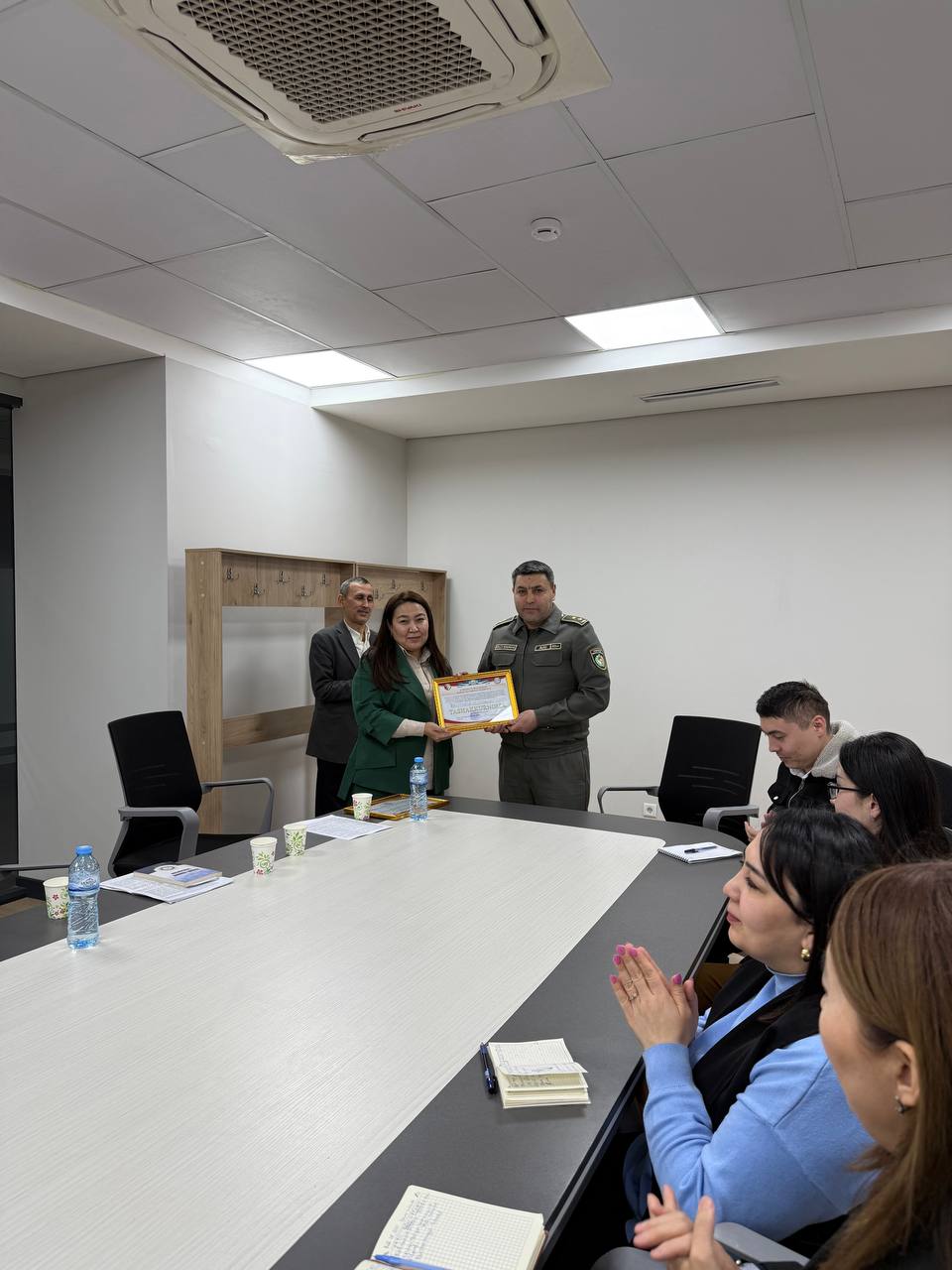It is well-known that February is celebrated with particular grandeur in our country. After all, this month is when we widely commemorate the birthdays of Alisher Navoi, the sultan of poetry, founder of the Uzbek literary language, and a prominent statesman Zahiriddin Muhammad Babur, a poet, skilled commander, and the founder of the Mughal Empire. On February 18th of this year, a literary and educational roundtable was organized on the theme of “The Role of Navoi’s and Babur’s heritage in upbringing of young people” by the Department of Languages of the University of Public Safety of the Republic of Uzbekistan, cadets of group 401a of the third course, and Dildora Mirzakarimovna Rakhmonova, PhD, Associate professor of “Uzbek Language and Literature” Department of Tashkent State University of Law, as well as Nodirkhon Dadakhanovich Khasanov, Doctor of Philology, Professor of “Uzbek Literary Studies” Department of the National University of Uzbekistan named after Mirzo Ulugbek. At the roundtable, Navoi scholar Dildora Mirzakarimovna Rakhmonova briefly touched upon the importance of the works of the great Alisher Navoi, sultan of poetry, founder of the Uzbek literary language, in upbringing of young people, the special attention paid to this issue in our country today, and the scientific and practical work being carried out in this direction. Babur scholar, professor Nodirkhon Dadakhanovich Khasanov, in turn, provided information about the life of Shah and poet, skilled commander, founder of the Mughal Empire Zahiriddin Muhammad Babur, and about the scientific and spiritual heritage he created. At the event, the Head of the Department of Languages, Khursandov Alisher Suyunovich, and the Associate professor of the Department, Latipov Okil Jurakulovich, also provided additional information about the deeds accomplished by Navoi, gave examples from stories about Navoi, and highlighted the instructive aspects of the life of the great commander and poet Zahiriddin Muhammad Babur, who ascended the throne at the age of 12 and took responsibility for the country and people, and later founded a powerful empire. It is noteworthy that the cadets demonstrated that they have sufficient information about the two great figures, reciting excerpts from their literary works, ghazals, and rubaiyats. The literary and educational evening showed that there are many talented young people among the followers of our great ancestors. We hope that the scientific and literary heritage created by these great figures will continue to illuminate the path of young people for many years to come, calling them to perfection and maturity.
THE DEPARTMENT OF LANGUAGES HELD A LITERARY AND EDUCATIONAL ROUNDTABLE DISCUSSION ON THE TOPIC OF “THE ROLE OF NAVO…
642


